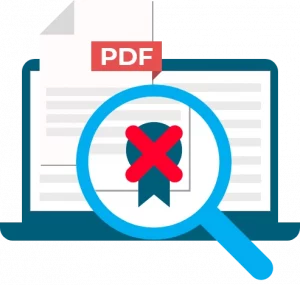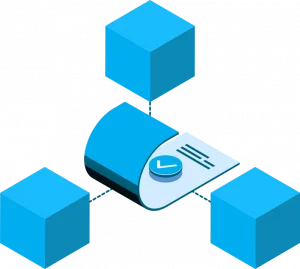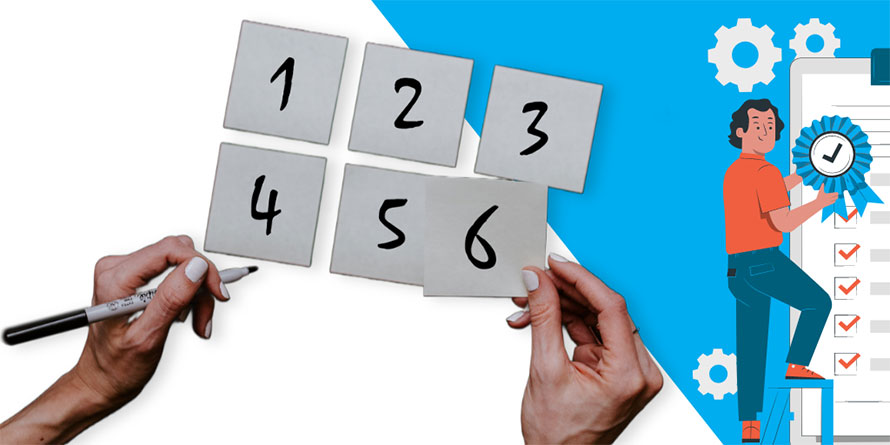Numerous organizations, universities, training centres and companies have a digital accreditation solution or plan to adopt one in the near future. In France, several higher education establishments have already taken a step ahead in this field, such as the IAE of Dijon and the University of Lille, while other entities are still wondering whether such a development is desirable, affordable, or even feasible. Many preconceived ideas block decisions on the implementation of new digital accreditation solutions!
Digital degrees in higher education: a false good idea, or a revolutionary concept? Let BCdiploma clear up some misunderstandings about the implementation and use of digital credentials!
1. “Neither students nor universities want or need digital certificates”
Many institutions are not fully aware of the eminently practical nature of a blockchain-based digital credential system. The adoption of digital badges and certificates certainly involves a change of habit, and a certain investment of time, but far exceeding the initial efforts of implementation are its various advantages, including:
- A significant reduction in the costs of issuing degree and diploma certificates, physical versions of which have high short and medium term costs for universities and certifiers.
- The revocability of digital diplomas and certificates, which makes it easier for entities to control those they have issued over the long term.
- The immediacy of issuing and delivering diplomas and certificates, a clear advantage for recipients, who often need proof of their qualification quickly, in order to take the next step in their careers.
- The image of innovation and adaptability that an establishment conveys by adopting such a modern solution, one step ahead of the competition!
2. “Digital diplomas are just certificates in PDF format”

Diplomas and certificates issued in PDF format are common and often the only solution internally available for many institutions, but they are far less secure than digital certificates recorded on a blockchain. Indeed, despite various protections that can be added to them, PDFs remain at the mercy of fraudulent use, tampering, forgery, and theft. PDFs can be modified in almost any way, which is certainly not the case with verifiable digital diplomas and certificates recorded on a blockchain.
3. “Digital diplomas and certificates are insecure and unreliable”

The purpose of digital diplomas and certificates is precisely to offer institutions and recipients a much more secure and reliable alternative to traditional diplomas! Digital credentials, when recorded on a blockchain, offer:
- Total transparency and traceability of even the slightest modification made to the document.
- Perfect control of its validity, leaving the issuer the power of revoking it if necessary.
- Assurance of its durability, as once stored on the blockchain it will be permanently available there.
4. “Digital badges are worthless”
Digital badges, a certain format of digital credentials, can be used to certify the success of a particular job, achievement of a specific skill, or validation of a certain stage in a university course. Used in the right way, a system of digital badges allows students or employees to easily prove the progress they have made and the skills they have acquired. Universities and employers, for their part, can quickly and easily check the progress, level of attainment, and qualifications of applicants and career aspirants.
Additionally, open badges are highly compatible with social networks, on which they can be easily shared, boosting not only the visibility and reputation of their holder, but also of the entity issuing them.
5. “Students prefer a traditional paper certificate”
This may indeed be the case for some students, since the traditional paper certificate is the one we all know and love to display somewhere at home or work. However, switching to a digital format in no way prevents you from continuing to issue the traditional paper format, or from enjoying the advantages of both! It is also interesting to note that numerous institutions now print paper diplomas or certificates for their graduation ceremonies directly from their BCdiploma Digital Credentials solution.
6. “We’d have to overhaul all our existing systems”

Adding a digital accreditation solution to an organization’s processes does not mean having to replace the existing system from top to bottom, rather only automating certain mechanisms through a lightweight and adaptable solution. At BCdiploma, we only implement tailor-made solutions that fully take into account your existing systems and processes.
BCdiploma, your expert in digital certificates and open badges
If you are now more convinced of the usefulness and intrinsic qualities of digital credentials, why not try out our digital accreditation solution? Visit our website to learn more about the many features this technology can offer your organization.
